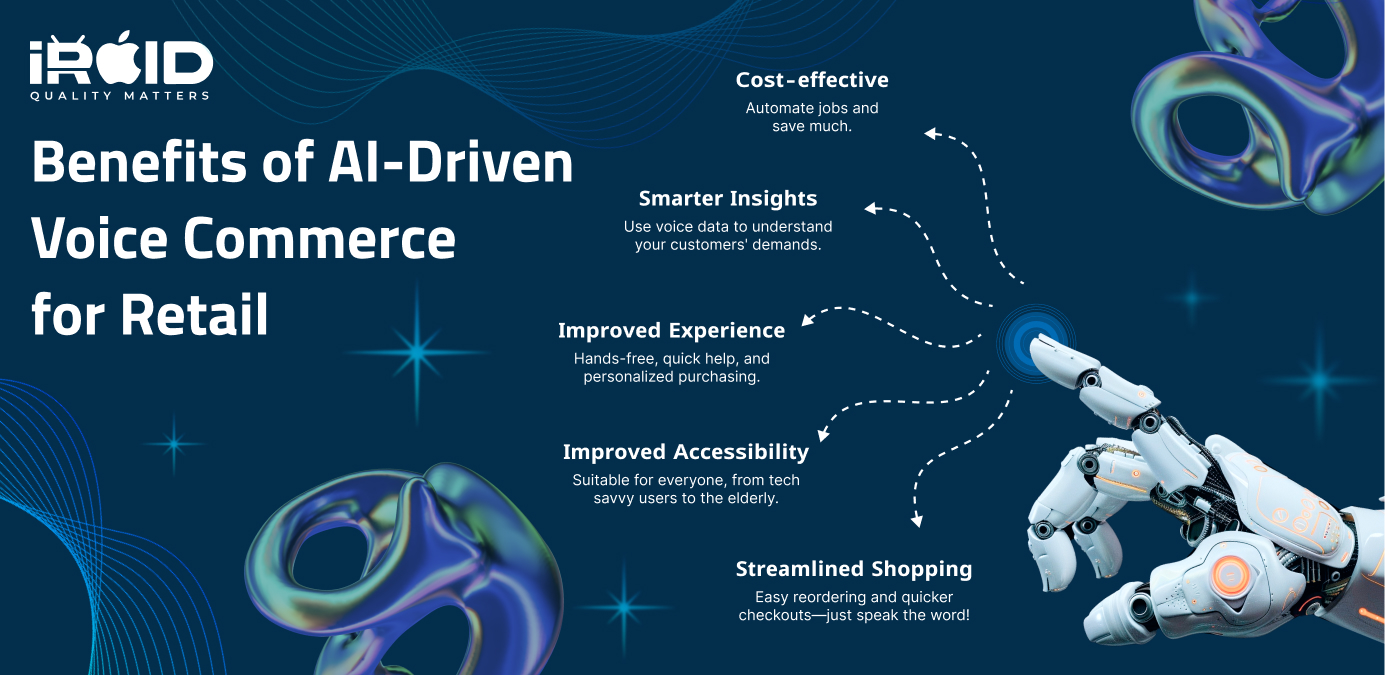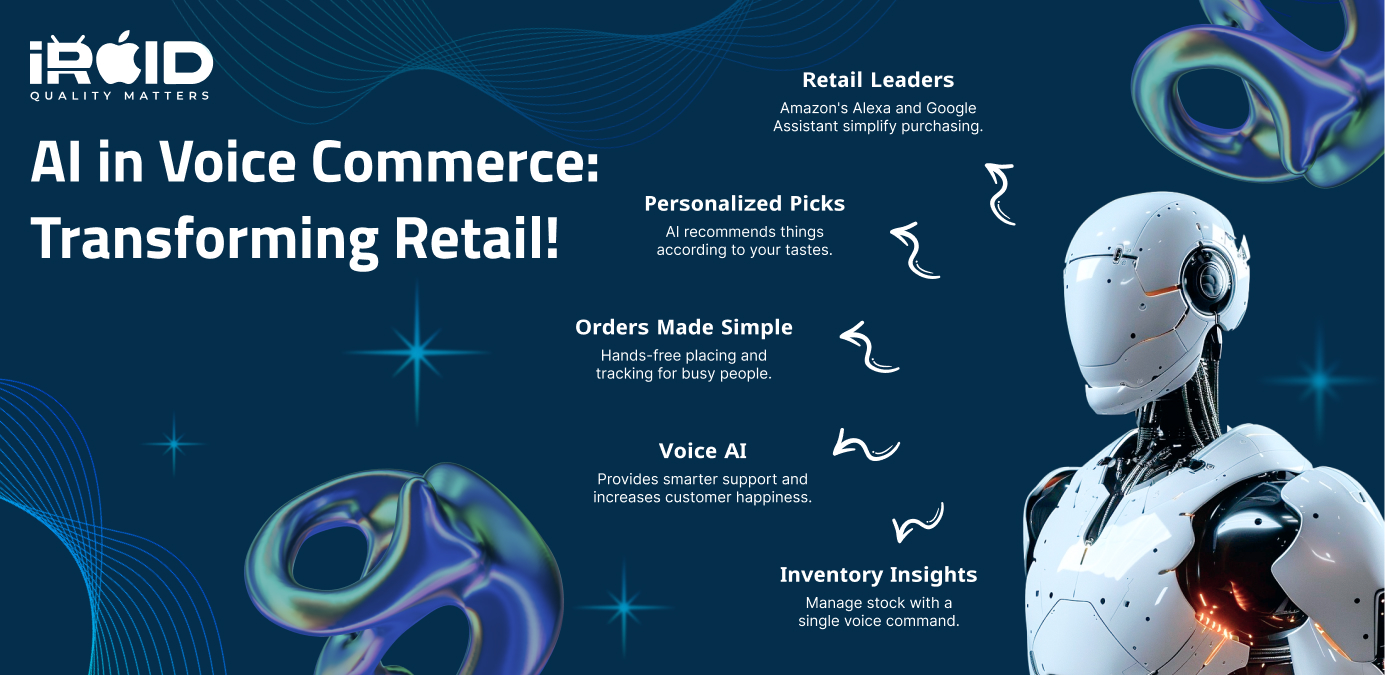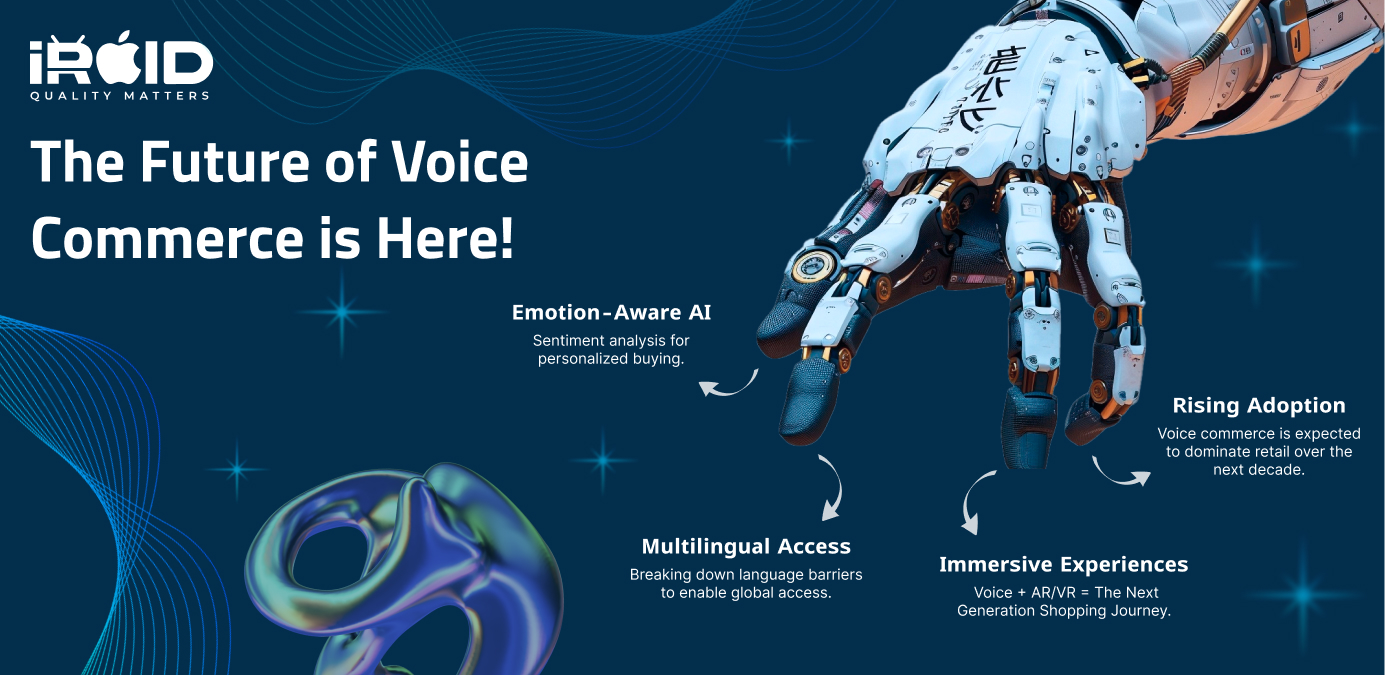Introduction
Voice commerce is making waves in the retail world, and it's easy to see why. More and more people are jumping on the bandwagon of voice-activated shopping, thanks to the growing convenience and accessibility these technologies offer. At the heart of this transformation is artificial intelligence (AI), which is enhancing the capabilities of voice commerce to create a truly engaging shopping experience. But what does this mean for retailers and customers alike? Let’s dive in and explore how AI is reshaping the future of retail.
Understanding Voice Commerce
Voice commerce refers to the use of voice technology to facilitate shopping. This includes anything from placing orders to checking product availability, all through voice commands. It encompasses popular devices like:
-
Amazon Alexa – One of the frontrunners in voice shopping, Alexa allows users to order products, add items to their shopping lists, and more with simple voice requests.
-
Google Assistant – With its deep integration into Google services, it helps users find products and make purchases seamlessly.
-
Apple Siri – Although slower to the voice commerce scene, Siri is bridging the gap with features that allow users to interact using their voices.
According to recent statistics, voice commerce sales are projected to reach a staggering $40 billion by 2022 in the U.S. alone, showcasing just how rapidly this sector is growing. It illustrates a transformation that’s not just a trend, but a significant shift in how we shop.
The Role of AI in Voice Commerce
AI is the backbone of voice commerce and powers various technologies that enhance the shopping experience. Here are some key areas where AI plays a vital role:
Natural Language Processing (NLP)
NLP helps devices understand and interpret customer commands in a way that feels natural. This means that you can say, "What's the best deal on shoes?" and get a relevant response, rather than being met with confusion.
Machine Learning (ML)
Machine learning helps voice technology learn from previous interactions. The more you use a voice assistant, the more it understands your preferences and can tailor its responses accordingly. For instance, if you often order coffee, it’ll suggest your favorite brew when you ask for recommendations.
Voice Recognition
Voice recognition technology can create personalized experiences by recognizing individual voices. This means that if you share a home device with family members, it can remember orders based on who is speaking, adding a personal touch to the shopping experience.
AI also integrates with retail systems, making transactions more seamless. With a single voice command, customers can browse, shop, and check out, revolutionizing the traditional purchasing process.
Benefits of AI-Driven Voice Commerce for Retail

Adopting AI in voice commerce offers a slew of benefits for both retailers and consumers:
Enhanced Customer Experience
Voice commerce provides instantaneous support and personalized recommendations. Users can get what they want without sifting through a website or app. Plus, hands-free operations make it convenient to shop while busy with other tasks.
Improved Accessibility
Voice technology serves as a game changer for customers with visual or physical impairments, allowing them to shop easily. It also appeals to both tech-savvy individuals and older generations who may not be as familiar with traditional shopping methods.
Streamlined Shopping Process
AI enables faster product searches and quicker checkouts. Imagine just saying, "Reorder my groceries," and having your list ready without any further hassle. Effortless reordering has never been easier.
Customer Insights and Analytics
Voice data provides retailers with valuable insights into shopping behaviors. By analyzing voice commands and interactions, retailers can better understand their customers' needs and preferences.
Cost Efficiency for Retailers
AI chatbots and voice assistants automate many customer service tasks, saving time and money for retailers. This can free up staff to focus on more complex queries or personalized customer care.
AI in Voice Commerce: Transforming Retail!

Many retail giants are leading the charge in voice commerce and showing how it can be done effectively:
Retail Giants Setting Trends
-
Amazon’s Alexa allows customers to order products simply and conveniently.
-
Google Assistant makes it easy to execute retail transactions just by asking.
Personalized Recommendations
Retailers are using AI to generate suggestions based on past purchases. Personalized recommendations can significantly enhance the shopping experience by making it easier for customers to discover new products.
Order Management
Voice technology streamlines order placements and tracking, allowing users to manage orders hands-free – a feature that's particularly handy for busy individuals.
Customer Support
Voice AI can address queries efficiently, ensuring customers feel heard and valued. This level of service fosters customer loyalty and satisfaction.
Inventory Management
Retailers can use voice commands to track inventory levels, making management more straightforward and reducing human error.
Challenges and Limitations of AI in Voice Commerce
While AI-driven voice commerce has many advantages, there are notable challenges that retailers must navigate:
Privacy and Security Concerns
Customers may hesitate to use voice technology due to concerns about how their voice data is stored and used. Ensuring robust security measures is essential.
Misinterpretation of Voice Commands
Voice assistants can struggle with accents, background noise, or unclear commands, which sometimes leads to frustration for users when their requests are misunderstood.
Adoption Barriers
Not everyone is comfortable with new technology, and less tech-savvy individuals may find it difficult to embrace voice commerce fully.
High Development Costs
For small retailers, the investment in developing effective voice commerce solutions can be prohibitively high, leading to a disparity in adoption rates among different retailers.
The Future of AI in Voice Commerce

Looking ahead, several exciting developments are on the horizon:
Emerging Technologies
Fields like sentiment analysis could enable systems to gauge customer emotions through voice intonation, allowing for an even more tailored shopping experience.
Multilingual Capabilities
AI could break language barriers, making voice commerce accessible to a global audience, which is vital as e-commerce continues to expand worldwide.
Fully Immersive Retail Experiences
Future integrations with augmented and virtual reality could offer exciting, fully immersive shopping experiences where voice control guides the customer through their journey.
Predictions indicate that voice commerce adoption rates could soar over the next decade, cementing its role in the retail sector.
Conclusion
In conclusion, AI-driven voice commerce is revolutionizing the retail landscape by offering unparalleled convenience, personalization, and accessibility. With technologies like NLP, machine learning, and voice recognition, retailers can create seamless, hands-free shopping experiences that cater to diverse customer needs. While challenges like privacy concerns and development costs persist, advancements in AI and emerging technologies promise an exciting future for voice commerce. At iRoid Solutions, we specialize in developing innovative solutions that empower businesses to stay ahead in this dynamic market. Ready to elevate your retail experience? Contact us today!
Blog Related FAQs:
AI customer support refers to the use of artificial intelligence technologies such as chatbots, virtual assistants, and machine learning algorithms to automate and enhance customer interactions. These systems help businesses handle queries efficiently, provide instant responses, and improve overall customer service.
AI chatbots automate responses to frequently asked questions, reduce wait times, and provide 24/7 assistance. They can handle multiple customer inquiries simultaneously, improving efficiency and reducing the workload on human agents.
While AI is highly effective in handling routine queries and automating support, it cannot completely replace human agents. Complex issues requiring human judgment, empathy, and problem-solving skills still need human intervention. A hybrid approach, combining AI and human support, is the most effective solution.
NLP enables AI to understand and process human language, allowing chatbots and virtual assistants to comprehend queries, analyze sentiment, and provide contextually relevant responses. This improves the accuracy and efficiency of customer interactions.
Industries such as IT services, e-commerce, healthcare, banking, and telecommunications benefit significantly from AI customer support. AI helps businesses in these sectors provide quick, personalized, and efficient customer service.
AI-powered solutions vary in cost depending on the complexity and scale of implementation. While there are upfront investment costs, AI significantly reduces long-term expenses by improving efficiency, reducing labor costs, and enhancing customer satisfaction.
At iRoid Solutions, we specialize in integrating AI-powered customer support solutions tailored to your business needs. Whether it's chatbot development, NLP integration, or AI-driven ticketing systems, we help businesses enhance customer experiences and streamline support operations. Contact us today to learn more!
Recent Blog Posts
Get in Touch With Us
If you are looking for a solid partner for your projects, send us an email. We'd love to talk to you!














